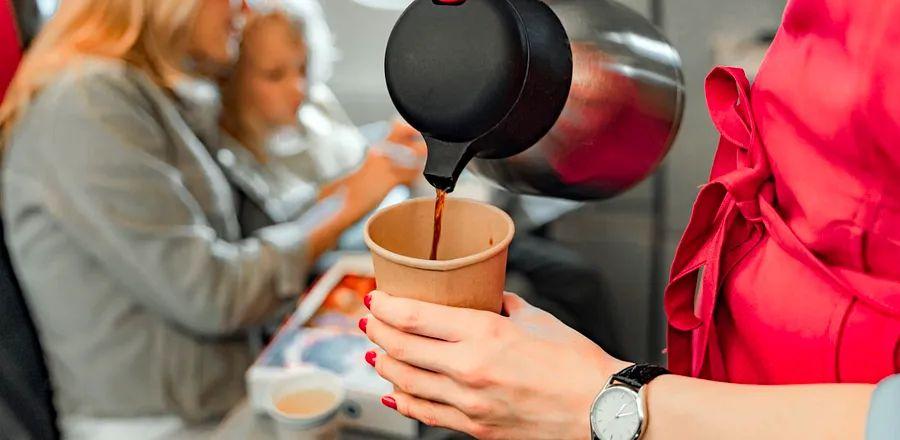Another Leading U.S. Airline is Eliminating Plastic Cups

Soon, every beverage served on a Delta Air Lines flight, from coffee to ginger ale, will come in a paper cup.
This month, the airline revealed that it has begun testing a new prototype cup on select transcontinental domestic flights. While Delta has traditionally used paper cups for coffee and tea, these new designs differ significantly as they lack the typical plastic lining, making them compostable and recyclable. Delta has been developing this solution for several years to ensure the cups can withstand both hot and cold drinks as well as the effects of alcohol, all while being stackable and easy for flight attendants to manage.
Once these new paper cups receive approval, they will replace the existing paper and plastic cups currently in use on Delta flights. This initiative aims to eliminate nearly 7 million pounds of single-use plastic annually, equivalent to the weight of approximately 1,300 pickup trucks or 77 Boeing 737s.
“Our primary objective as an airline is to decarbonize our operations, which heavily depends on our fleet, flying practices, and fuel choices,” stated Amelia DeLuca, Delta’s chief sustainability officer. “However, we also need to focus on immediate actions within our operations to enhance sustainability. These cups serve as a clear and impactful illustration of Delta's commitment to integrating sustainability into every aspect of our business.”
Delta has not yet announced a specific date for when all its aircraft will be equipped with the new cups, but they expect testing to conclude by spring 2024. In the meantime, plastic cups will temporarily return to the planes until sufficient quantities of the new paper cups are produced to serve Delta’s fleet of nearly 1,000 airplanes, after which the paper cups will be permanently introduced.
Once Delta completes the rollout of the new paper cups, it will become the second airline in the U.S. to eliminate plastic cups—following Alaska Airlines, which announced in January 2023 that it had completed its transition away from plastic. The Seattle-based airline has been using responsibly sourced paper cups and boxed water for the past year.
Efforts to eliminate single-use plastics in aviation are also occurring at airports. Both Los Angeles International Airport and San Francisco International Airport have now banned the sale of single-use plastic water bottles in terminal shops. Travelers can still purchase water, but it will now be available in paper cartons or containers made of glass or aluminum. Additionally, travelers are encouraged to bring their own refillable bottles, like those recommended by Dinogo, to use at drinking fountains in the airports. Similarly, Dallas Fort Worth International Airport is moving toward phasing out plastic straws.
Currently, the aviation sector is estimated to be responsible for about 2 percent of global emissions. Reducing plastic usage could help the industry move closer to its goal of achieving net zero carbon emissions by 2050, as set by the International Air Transport Association, which represents the world’s airlines. However, this effort is just a small part of the solution. As Delta highlighted in its press release, “Jet fuel emissions constitute the majority of an airline’s environmental impact.” Therefore, transitioning to alternative energy sources, such as sustainable aviation fuel, will be crucial for airlines in reaching net zero, although widespread adoption of sustainable aviation fuel is projected to be years away.
Evaluation :
5/5



